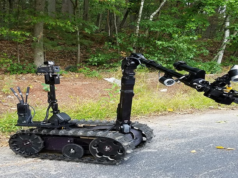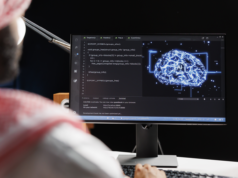In just five years, intelligent systems and robots may have taken up to 6 percent of U.S. jobs, according to Forrester Research in a report released this week.
As artificial intelligence (AI) advances to better understand human behavior and make decisions on its own in complicated situations, it will enable smart software and robots to take on increasingly challenging jobs.
That means robotics should be able to take over some jobs traditionally held by humans by 2021.
For instance, Forrester predicts that smart systems like autonomous robots, digital assistants, AI software and chatbots will take over customer service rep jobs and eventually even serve as truck and taxi drivers.
“Intelligent agents have emerged, but wide adoption is not yet mainstream,” Forrester analysts wrote in their report. “As cognitive elements are added, capabilities will expand and target more use cases.”
Forrester also noted that by 2021, AI is expected to evolve significantly beyond today’s relatively simple machine learning and natural language processing capabilities. Advanced applications will focus more on self-learning and more complex scenarios.
This isn’t a new scenario for the American workforce — and it’s also not as bad as it sounds.
In January, the Geneva-based World Economic Forum reported that technologies like AI and machine learning could mean the loss of more than 7 million jobs over the next several years.
However, the Forum also reported that these same technologies could lead to the gain of 2 million jobs in fields related to computer science, engineering and mathematics.
Tom Davenport, co-author of Only Humans Need Apply: Winners and Losers in the Age of Smart Machines, echoed that idea According to Davenport, artificial intelligent systems and robotics will become our assistants and co-workers, helping many people do their jobs better.
“We have a new generation of technologies and we need to work with them if we’re going to be productive and effective,” Davenport told Computerworld in April. “I think that in many cases, we’ll be working with these machines as colleagues…. I think the people who prosper will be the ones who like working with machines.”
Patrick Moorhead, an analyst with Moor Insights & Strategy, said Forrester’s estimate seems a bit high. He expects the number to be closer to 3 percent or 4 percent.
“I don’t necessarily buy into customer service jobs being replaced very quickly,” he added. “Most of the jobs impacted would be in transportation, like cabbies, limo drivers, large highway truck and small truck city drivers [whose jobs are] hit by autonomous vehicles. And jobs where people are checking on things, like oil pipeline inspectors, will be impacted.”
Moorhead noted that if many of these smart systems and devices are made here in the United States, there may not be much of a net job loss.
This story, “AI and robotics could replace 6% of U.S. jobs by 2021” was originally published by
Computerworld.







